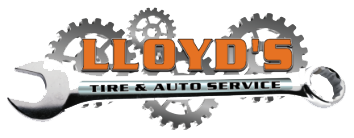Preparing Your Vehicle for Virginia's Changing Weather
Virginia's transitional seasons bring dramatic weather changes that test vehicle systems and challenge even experienced drivers. From sudden temperature drops to unexpected storms, preparing your vehicle for these conditions ensures safety, reliability, and peace of mind during unpredictable weather periods.
Temperature Fluctuation Effects
Virginia's weather can shift from warm afternoons to cold mornings within hours, affecting tire pressure, battery performance, and fluid viscosity. These rapid changes stress vehicle systems differently than gradual seasonal transitions, requiring proactive maintenance to prevent problems.
Battery capacity decreases significantly in cold weather, while hot conditions accelerate chemical reactions that shorten battery life. Regular battery testing identifies weakening cells before they fail during critical temperature swings common in Virginia weather patterns.
Cooling System Preparation
Coolant systems must handle both overheating risks during warm spells and freeze protection during cold snaps. Proper coolant concentration and condition prevent both extremes while maintaining optimal engine operating temperatures throughout weather transitions.
Radiator and cooling system inspections identify leaks, blockages, and worn components before they cause expensive engine damage. Thermostat function becomes critical during temperature variations, ensuring proper coolant circulation and engine warm-up.
Tire Performance in Variable Conditions
Changing weather requires tires that perform reliably across diverse conditions including dry pavement, wet roads, and occasional frost. Adequate tread depth provides traction during sudden weather changes when road conditions can become hazardous quickly.
Professional tire evaluation examines tread patterns, sidewall condition, and pressure variations that affect performance during weather transitions. Proper tire maintenance ensures optimal contact with road surfaces regardless of temperature or precipitation changes.
Electrical System Reliability
Variable weather increases electrical system demands as lighting, heating, cooling, and defrosting systems cycle frequently. Alternator and charging system capacity must support these varying loads while maintaining battery charge during extended accessory use.
Wiring and electrical connections can fail when exposed to temperature extremes and moisture variations. Professional electrical system testing identifies weak connections and aging components before they cause complete system failures.
HVAC System Versatility
Climate control systems work harder during transitional weather as heating and cooling demands change throughout single days. Air conditioning components must function efficiently during warm periods while heating systems provide comfort during cold spells.
Cabin air filter condition becomes crucial during weather changes as systems circulate more air to maintain comfort. Clean filters ensure efficient operation and prevent strain on HVAC components during peak demand periods.
Fluid System Maintenance
Engine oil, brake fluid, and other automotive fluids respond differently to temperature variations. Oil viscosity changes with temperature affect engine lubrication, while brake fluid performance varies with thermal cycling during weather transitions.
Professional fluid analysis identifies contamination and degradation that accelerate during weather stress. Regular fluid replacement maintains optimal system protection regardless of environmental conditions your vehicle encounters.
Professional Weather Preparation
Comprehensive vehicle preparation addresses all systems affected by weather changes. Our preventative maintenance services include weather-specific evaluations that ensure your vehicle performs reliably during Virginia's challenging seasonal transitions.
Professional technicians understand how different vehicle systems interact during weather stress. This knowledge helps identify potential problems before they develop into expensive repairs or roadside emergencies during severe weather.
Emergency Equipment and Supplies
Unpredictable weather requires emergency preparedness for situations that develop quickly. Basic emergency supplies including flashlight, blanket, water, and first aid items help manage unexpected situations until professional assistance arrives.
Vehicle-specific emergency equipment including jumper cables, tire pressure gauge, and basic tools address common weather-related problems. Cell phone chargers and emergency contact information ensure communication capability during challenging conditions.
Seasonal Service Scheduling
Weather preparation requires timing maintenance around seasonal transitions rather than calendar dates. Professional service scheduling considers local weather patterns and individual vehicle needs to optimize preparation timing.
Proactive maintenance scheduling prevents service delays during peak weather preparation periods. Early preparation ensures your vehicle receives attention before weather emergencies create high service demand and longer wait times.
Driving Strategy Adjustments
Changing weather requires driving habit adjustments that reduce vehicle stress and improve safety. Gentle acceleration, gradual braking, and smooth steering inputs reduce wear on vehicle systems while providing better control during challenging conditions.
Well-maintained vehicles respond more predictably to driver inputs during weather challenges. Professional diagnostic services ensure all systems function properly before weather conditions test vehicle capabilities and driver skills.
For comprehensive vehicle weather preparation throughout Virginia's changing seasons, contact Lloyd's Tire & Auto at (804) 737-2828 . Our experienced team understands local weather challenges and provides thorough preparation services to keep your vehicle reliable year-round.
